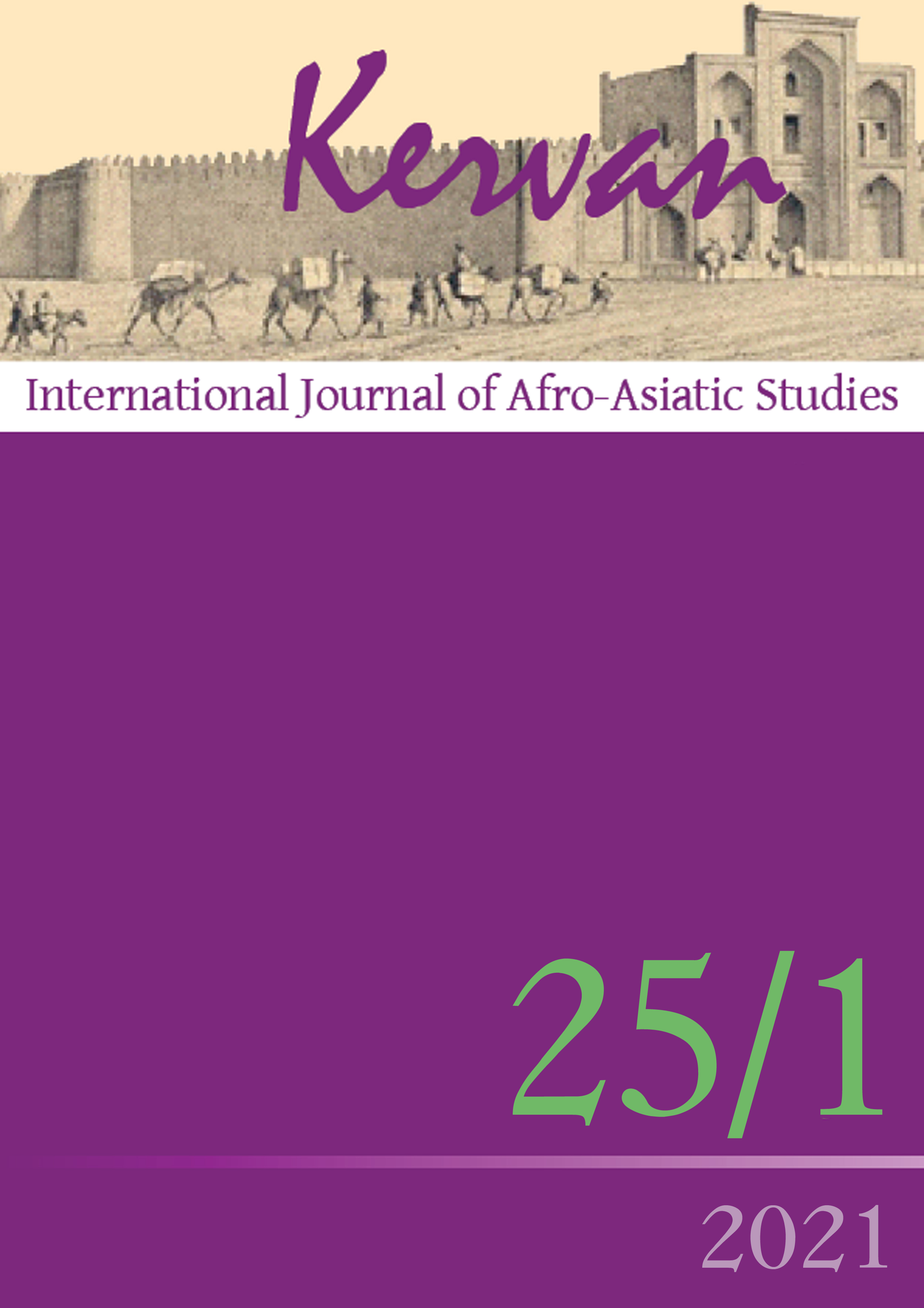On the morphology of the word tawriya according to al-Ṣafadī (d. 764/1363): Between Baṣrans and Kūfans
DOI:
https://doi.org/10.13135/1825-263X/5891Abstract
The starting-point for this article is the statement made by al-Ṣafadī (d. 764/1363) that the Arabic word tawriya has the original form (aṣl) *wawriya, corresponding to the pattern (wazn) tafʿila, in which the first radical wāw has been replaced by the segment /t/. I aim to shed light on this derivation postulated by al-Ṣafadī by investigating the major sources of grammatical, morphological, and etymological studies which were then available to him. I analyse the sources chronologically to arrive at a better understanding of developments in morphology in the period from the first authors to al-Ṣafadī’s contemporaries. I show that al-Ṣafadī was influenced by the disquisitions of the two main schools of Arabic thought on grammar: those of Baṣra and Kūfa. He was influenced in particular regarding the question of how to attribute the patterns to some words like tawrāt, with the Baṣran grammarians positing that it is fawʿala, and those belonging to the Kūfa school maintaining that it is according to the pattern tafʿala. Moreover, and precisely because some scholars assume that tawriya and tawrāt have a common etymology, al-Ṣafadī postulates that, besides having the same root, they also share the same original form, meaning that both words underwent the same phonological and morphological mutations.
Downloads
Downloads
Published
Issue
Section
License
Gli autori che pubblicano su Kervan accettano le seguenti condizioni:
- Gli autori mantengono i diritti sulla loro opera e cedono alla rivista il diritto di prima pubblicazione dell'opera, contemporaneamente licenziata sotto una Licenza Creative Commons - Attribuzione che permette ad altri di condividere l'opera indicando la paternità intellettuale e la prima pubblicazione su questa rivista.
- Gli autori possono aderire ad altri accordi di licenza non esclusiva per la distribuzione della versione dell'opera pubblicata (es. depositarla in un archivio istituzionale o pubblicarla in una monografia), a patto di indicare che la prima pubblicazione è avvenuta su questa rivista.


 The articles that have appeared on Kervan since 2016 are rated as Class A in the system of National Scientific Qualification (ASN, disciplines 10/N1 and 10/N3).
The articles that have appeared on Kervan since 2016 are rated as Class A in the system of National Scientific Qualification (ASN, disciplines 10/N1 and 10/N3). The journal has been approved for inclusion in DOAJ. The DOAJ listing of the journal is available at
The journal has been approved for inclusion in DOAJ. The DOAJ listing of the journal is available at  The journal has been approved for inclusion in ERIH PLUS. The ERIH PLUS listing of the journal is available at
The journal has been approved for inclusion in ERIH PLUS. The ERIH PLUS listing of the journal is available at  Kervan was just accepted for indexing in SCOPUS. This important milestone ensures that articles published in Kervan are easily found when searching for library, archives and Information science and it enables Kervan authors to keep track of how often their article has been cited by others.
Kervan was just accepted for indexing in SCOPUS. This important milestone ensures that articles published in Kervan are easily found when searching for library, archives and Information science and it enables Kervan authors to keep track of how often their article has been cited by others.

